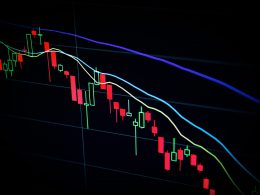In the intricate dance of economics, the United States serves as a pivotal player, its economic performance sending ripples across global markets. However, amidst the highs and lows of economic cycles, financing practices often undergo a profound transformation, mirroring the nation’s fiscal health. Today, we delve into this symbiotic relationship, tracing the trajectory from boom to bust and its profound impact on financing strategies.
The Boom: A Symphony of Optimism

During economic booms, euphoria permeates the air, buoyed by robust growth, soaring stock markets, and exuberant consumer spending. In such times, financing practices reflect this optimism, characterized by easy credit availability, aggressive lending, and a proliferation of investment opportunities.
One need only glance back at the roaring twenties, where the stock market soared to unprecedented heights, underpinned by a surge in speculative trading and lax regulatory oversight. Similarly, the dot-com bubble of the late 1990s witnessed a frenzy of investment in technology companies, fueled by unfounded optimism and a fervent belief in the limitless potential of the internet.
The Bust: A Symphony of Discontent
However, the euphoria of booms inevitably gives way to the sobering reality of busts. Economic downturns expose vulnerabilities previously obscured by the exuberance of prosperity, triggering a cascade of financial crises and systemic failures. In these turbulent times, financing practices undergo a seismic shift, characterized by retrenchment, risk aversion, and a frantic scramble for liquidity.
The Great Depression of the 1930s stands as a stark testament to the devastating consequences of unchecked speculation and overleveraged financing. As stock markets plummeted, banks collapsed, and unemployment soared, the nation grappled with the harsh realities of excess and greed.
More recently, the 2008 financial crisis laid bare the perils of subprime lending and complex financial instruments, triggering a global recession of unparalleled magnitude. In its aftermath, regulators scrambled to overhaul financial regulations, aiming to prevent a recurrence of the calamity that had plunged the world into turmoil.
The Evolution: Learning from the Past
Yet, amidst the wreckage of economic downturns, there lies opportunity for reflection and renewal. History serves as a poignant reminder of the dangers of complacency and the importance of prudent financial management.
In the wake of each crisis, financing practices evolve, tempered by the hard-earned lessons of the past. Regulatory frameworks are strengthened, risk management strategies are refined, and a newfound emphasis is placed on sustainability and resilience.
Today, as the United States navigates the complexities of a post-pandemic world, financing practices stand at a crossroads. The specter of inflation looms large, casting a shadow of uncertainty over monetary policy decisions and investment strategies. Yet, amidst the challenges lie opportunities for innovation and adaptation, as stakeholders seek to forge a path towards a more stable and inclusive financial future.
Conclusion: Navigating the Economic Landscape
In the grand tapestry of economics, the United States holds a privileged position, its economic fortunes shaping the destiny of nations far and wide. Yet, as history has repeatedly shown, prosperity is not immune to the forces of volatility and uncertainty.
From boom to bust, the evolution of financing practices offers a compelling narrative of resilience and adaptation. As we chart a course through the tumultuous waters of economic cycles, let us heed the lessons of the past, mindful of the profound impact of our decisions on the fabric of society.
In the ever-shifting landscape of finance, one thing remains certain: the journey from boom to bust is a cyclical odyssey, fraught with peril and promise in equal measure. And it is in our collective wisdom and foresight that we find the compass to navigate these uncharted waters, forging a path towards a more prosperous and equitable future.










